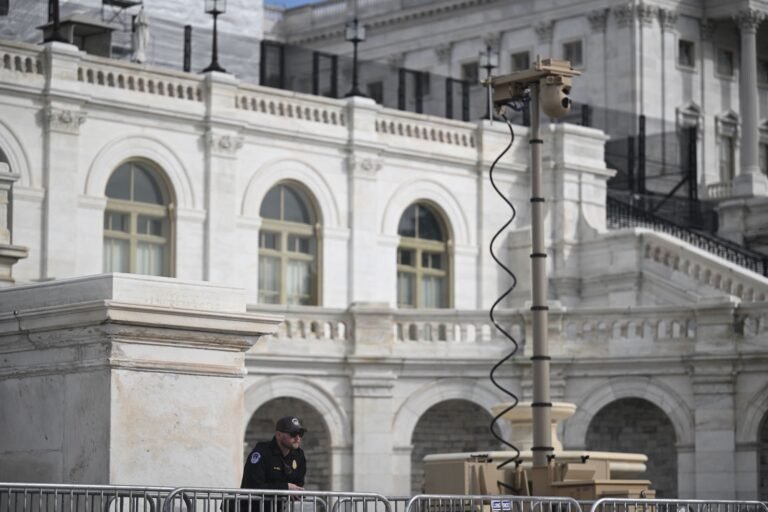The nation’s capital will quickly launch a brand new 24/7 Crime Heart (RTCC) the place regulation enforcement officers from numerous branches can monitor Washington’s surveillance digital camera community to extra successfully find suspects.
The Metropolitan Police Division will reportedly collaborate with the Secret Service, U.S. Park Police, Capitol Police and different businesses to observe tons of of cameras throughout subway stations, federal buildings and metropolis streets.
After against the law is reported, the division plans to rapidly find the suspect and observe his or her actions. That might be potential even when the suspect fled to a neighboring state, as regulation enforcement sources advised D.C. station WRC-TV that they’d have entry to cameras in Virginia and Maryland.
It’s unclear how town will function the operation across the clock, particularly for the reason that district now has fewer sworn officers than at any time prior to now half-century.
On Wednesday, D.C. Mayor Muriel Bowser appeared earlier than the Home Oversight Committee to debate the area’s crime drawback, the place the murder charge this yr was 32% greater than it was in 2022.
At one level in June, 4 youngsters had been killed within the metropolis over a 10-day interval. Of the 212 homicides reported within the capital up to now this yr, lower than 30% have been solved.
D.C.’s crime issues are even affecting lawmakers, with U.S. Rep. Henry Cuellar, D-Texas, being kidnapped by armed males who stole his automobile, cellphone and sushi, in D.C.’s Navy Yard district this fall.
Bowser is anticipated to formally announce the real-time crime hub someday on Thursday.
Many RTCCs function partitions of dwell surveillance gadgets, gunshot detection know-how, facial recognition software program, and license plate databases, amongst different instruments, in keeping with the Digital Frontier Basis.
Cities like Philadelphia and New York have relied on comparable intelligence facilities for years, at the same time as critics have raised issues about how fixed surveillance by regulation enforcement businesses might result in civil liberties violations.

